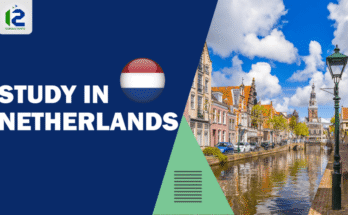Scholarship in the Netherlands the Netherlands, one of the best ways to finance your education is through scholarships. The Netherlands is home to some of the best universities in Europe, offering hundreds of scholarships to international students each year. But how can you increase your chances of securing one of these scholarships? In this comprehensive FAQ guide, we answer all your key questions to help you maximize your chances of success.
📌 What types of scholarships are available in the Netherlands?
There are several types of scholarships in the Netherlands:
- Government Scholarships: Funded by the Dutch government, such as the Holland Scholarship and Orange Knowledge Programme.
- University Scholarships: Offered by Dutch universities like Leiden University Excellence Scholarship, University of Amsterdam Merit Scholarship, etc.
- Private Scholarships: Sponsored by organizations and companies.
- Erasmus+ Scholarships: For exchange programs within Europe.
- Country-Specific Scholarships: Scholarships targeting students from specific countries.
📌 Who is eligible for scholarships in the Netherlands?
Eligibility depends on:
- Nationality (some are for non-EU students only)
- Academic performance (usually high GPA)
- Language proficiency (IELTS/TOEFL for English-taught programs)
- Field of study (certain scholarships focus on STEM, social sciences, etc.)
- Work experience (especially for postgraduate scholarships)
📌 How important are academic grades for Dutch scholarships?

Academic grades are very important. Most scholarships are merit-based, meaning:
- A high GPA increases your chances.
- Academic awards, publications, or research experience add value.
- Some scholarships have a minimum GPA requirement (e.g., 3.5/4.0).
If your grades are average, you can compensate with work experience or volunteering activities.
📌 Do I need to take IELTS or TOEFL for scholarship applications?
Yes, for most scholarships, proof of English proficiency is mandatory:
- Minimum IELTS score: usually 6.5 to 7.0
- Minimum TOEFL score: around 90-100 (internet-based test)
- Some universities accept alternative tests like Duolingo English Test or waive it if your previous education was in English.
📌 What documents are generally required for scholarship applications?
Common documents include:
- Application form (online)
- Academic transcripts and degrees
- Motivation letter or statement of purpose (SOP)
- Curriculum Vitae (CV) or Resume
- Two or more Recommendation Letters
- Proof of English proficiency (IELTS/TOEFL)
- Research proposal (for PhD)
- Passport copy
- Work experience certificates (if applicable)
📌 How do I write a strong motivation letter for a Netherlands scholarship
Tips for writing a powerful motivation letter:
- Explain why you chose the Netherlands and the specific university.
- Highlight your academic achievements.
- Discuss your career goals and how the scholarship will help.
- Show how you can contribute to the university or program.
- Be honest, personal, and avoid generic statements.
- Keep it between 500–800 words unless specified.
📌 How can I improve my chances if I don’t have high grades?
You can strengthen your application by:
- Gaining relevant work or internship experience.
- Volunteering or participating in extracurricular activities.
- Writing an excellent motivation letter.
- Getting strong recommendation letters.
- Choosing programs where your professional experience is valued more than grades (especially for master’s programs).
📌 Are there any full scholarships available in the Netherlands?
Yes! Some examples include:

- Orange Tulip Scholarship (for certain countries)
- Eric Bleumink Fund (University of Groningen)
- Leiden University Excellence Scholarship (LExS)
- Amsterdam Excellence Scholarship
- Orange Knowledge Programme (for mid-career professionals)
These scholarships often cover full tuition fees and sometimes living expenses.
📌 What is the Holland Scholarship?
The Holland Scholarship is for international students from outside the European Economic Area (EEA) who want to do their bachelor’s or master’s in the Netherlands. It offers a €5,000 grant, given in the first year of study.
Main requirements:
- Non-EEA nationality
- Applying for a full-time program at a Dutch university
- Meet specific university criteria
📌 How competitive are scholarships in the Netherlands
Dutch scholarships are competitive, especially full scholarships. Thousands of students apply each year, so you need:
- Excellent academic or professional record
- Well-written application documents
- Early preparation (applications open 6-12 months before intake)
📌 Which Dutch universities offer the most scholarships?
Top universities known for scholarships include:
- University of Amsterdam
- Leiden University
- Utrecht University
- Erasmus University Rotterdam
- TU Delft
- University of Groningen
- Radboud University
📌 When should I apply for scholarships in the Netherlands?
✅ Best time to apply:
- For September intake: apply between October – February
- For February intake: apply between May – October (fewer options)
Early applications have more chances. Many scholarships close months before the university admission deadline.
📌 Is work experience important for scholarships?
For master’s programs, especially business, management, or public policy – yes, work experience is very useful and sometimes required (like Orange Knowledge Programme).
For bachelor’s programs, work experience is not usually required but volunteering or extracurriculars are helpful.
For PhD programs, research and academic experience is essential.
📌 How can I find scholarships easily?
✅ Best websites to search for Dutch scholarships:
- https://www.studyinholland.nl/finances/scholarships
- University official websites (always check their scholarship page)
- https://www.scholarshipportal.com/
- Erasmus+ portal for exchange programs
📌 Can I apply for multiple scholarships in the Netherlands?
Yes, you can apply for multiple scholarships at the same time, but:
- You usually cannot hold two major scholarships (like Holland Scholarship + university full scholarship).
- Always check the terms and conditions of each scholarship.
📌 What is the Orange Knowledge Programme (OKP)?
OKP is a fully-funded scholarship for mid-career professionals from specific developing countries. It covers tuition fees, living costs, visa, and travel expenses. Applicants must:
- Have at least 2-3 years of work experience
- Be nominated by their employer
- Return to their country after studies
📌 How can I make my CV stand out for Dutch scholarships?
Tips for a strong scholarship CV:
- Keep it 1–2 pages, clear and professional
- Focus on academic and professional achievements
- Include relevant volunteering or social work
- Mention languages, IT skills, research, and projects
- Avoid too many personal details (marital status, religion are not necessary)
📌 Do I need to get admission before applying for scholarships?
It depends:
- For university scholarships, yes, you often need an admission offer first.
- For government scholarships (like Holland Scholarship), you apply after or during your university admission process.
- For OKP, you must be admitted first.
Always check the specific timeline on the scholarship website.
📌 Can I stay in the Netherlands after my scholarship finishes?
Yes, Dutch law allows international graduates to apply for a one-year “Orientation Year Visa” to search for a job after studies. Many international students secure employment in the Netherlands after completing their degree.
📌 Final Tips to Increase Your Chances of Getting a Scholarship in the Netherlands
✅ Start early: Research scholarships at least a year in advance.
✅ Apply broadly: Don’t depend on just one scholarship.
✅ Perfect your motivation letter: Make it unique and convincing.
✅ Get good recommendation letters from professors or employers.
✅ Prepare a professional CV tailored for scholarships.
✅ Take your English test (IELTS/TOEFL) early.
✅ Follow instructions carefully and meet deadlines.
✅ Conclusion
Getting a scholarship in the Netherlands is very achievable if you are well-prepared. With high academic or professional performance, a strong application, and the right strategy, you can increase your chances of studying in one of Europe’s most student-friendly countries. Start planning early, work on your application materials, and don’t give up—many students just like you succeed every year!


